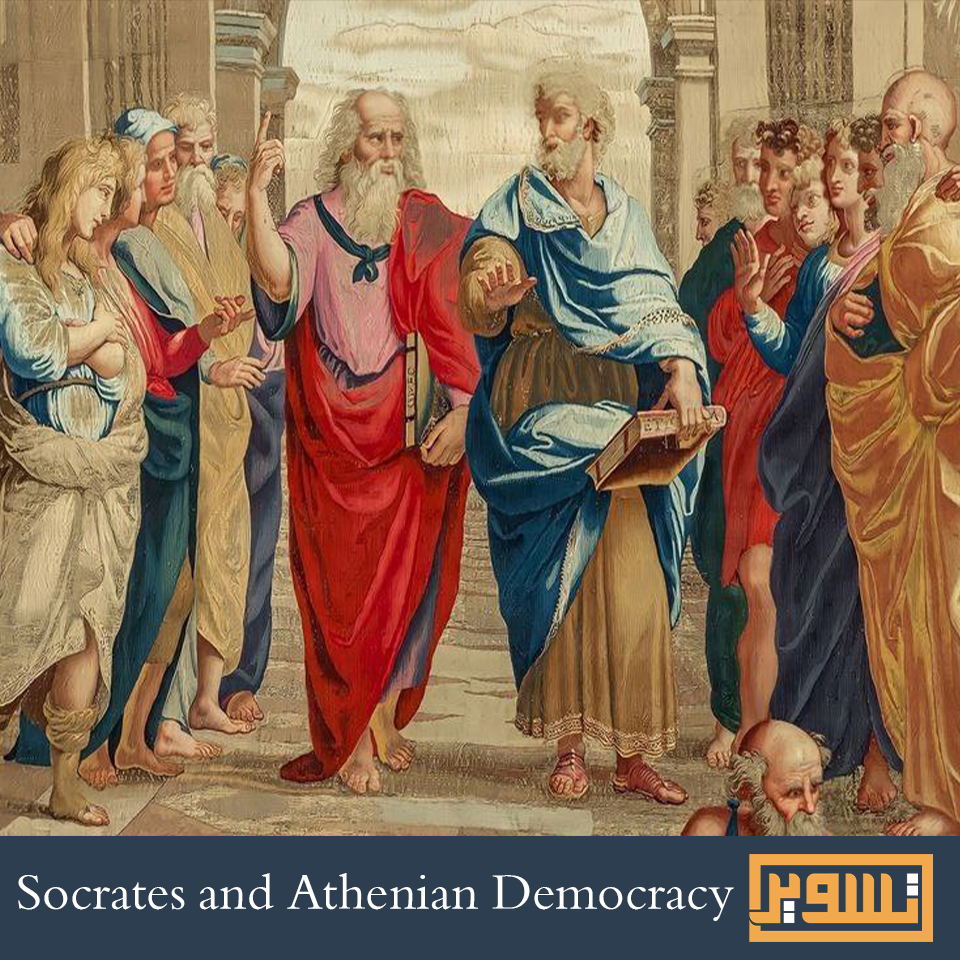Socrates and Athenian democracy
In this article, we go on a jaunt through history to learn where democracy was inaugurated and what fears it has accompanied since its emergence. What is our first experience of going through democracy and what did it lead to? Is democracy a right for all or an honour bestowed upon those who deserve it?
Socrates and Athenian democracy
As you know, dear reader, the probability of survival boosts if humans live in societies. Therefore, humans chose to live in societies and interdependent based on mutual benefits together for an extended time. But with the construction of these societies, we realized with our aware minds that we need systems to regulate behaviors and transactions. Randomness is clearly not the best option.
In our exploration for the fairest system, we went through and still going through many experiences, involving our experience with democracy, which contributed to the expanse of the individual’s desire for freedom and his participation in the political process.
Dissimilar to a dictatorship that sets power and authority in the hands of only one person, a leader who represents all in all, which made most people tend to choose democracy, but is the matter that easy?
Our first experience of democracy was in Athens, which viewed the most famous trial in the history of thought, the trial of Socrates, which led to his execution.
When the Athens democrats executed the greatest man of his time on charges of corrupting the youth and insulting religion and the state, his student Plato believed that democracy was responsible for his death. He wrote in the book “The Republic” that democracy is the worst regime after the tyrannical regime.
He explained how the country declines when its fate is decided by the mob, and how the people later demand a strong ruler to restore security and stability.
Plato claimed that in Athenian democracy, individuals’ pursuit of their own desires resulted in selfishness and conflict rather than the pursuit of the common good. Since citizens were free to pursue their passions, Plato claimed that rational leadership was impossible in Athenian democracy; Where elected representatives fulfilled the wishes of the citizens. Plato saw that the importance of the voice of the individual in the Athenian democracy decreases with the increase in the population of the democracy
The most prominent in Plato’s theory is that the strong ruler restores stability and security; But, with time, he turns into a tyrant who does not value law or values; Therefore, Plato classified democracy as a backward system that precedes only the authoritarian one.
Democracy is an entity that includes principles, ideals, and perceptions; However, these ideals and principles are subject to change, destruction, and preservation by the will of the people. Democracy has two important elements: the fixed will of the people, and the variable values and principles. The will of the people appears in the elections as the only means of measuring people’s desires and achieving their will. However, in order to achieve its goal, requires voter awareness and foresight, the impartiality of the authority, and the integrity of the procedures followed. When talking about awareness, the level of culture is not sufficient as an accurate criterion for judging democracy, because a people may have culture and civilization, still, democracy fails in it, and its societies are disturbed. The only reason for this imbalance is the firm belief that the will of the people is sacred, whatever the outcome of this will.
This leads us to wonder, does everyone have the license to take part in political life and elections, even if he does not have the essential knowledge and tools? Is allowing people with numerous cultural and scientific backgrounds and different intellectual levels to do more damage than advantage?.
Writer | Noorulzahraa Khalil
Proofreading and editing | Mohamed Raheem
Sources:


